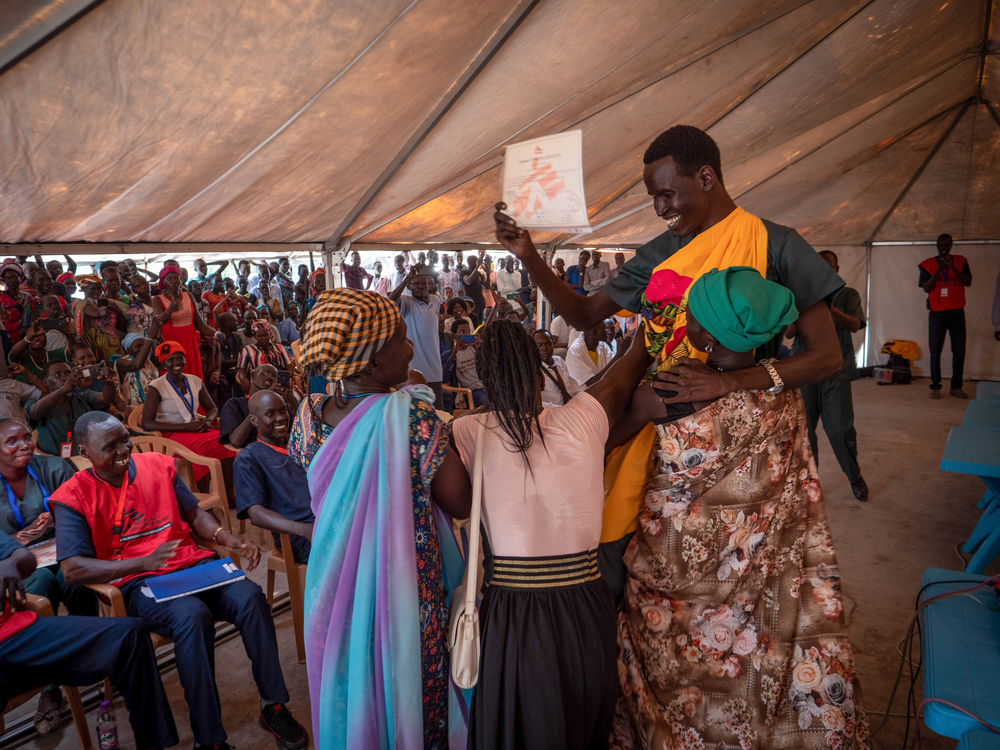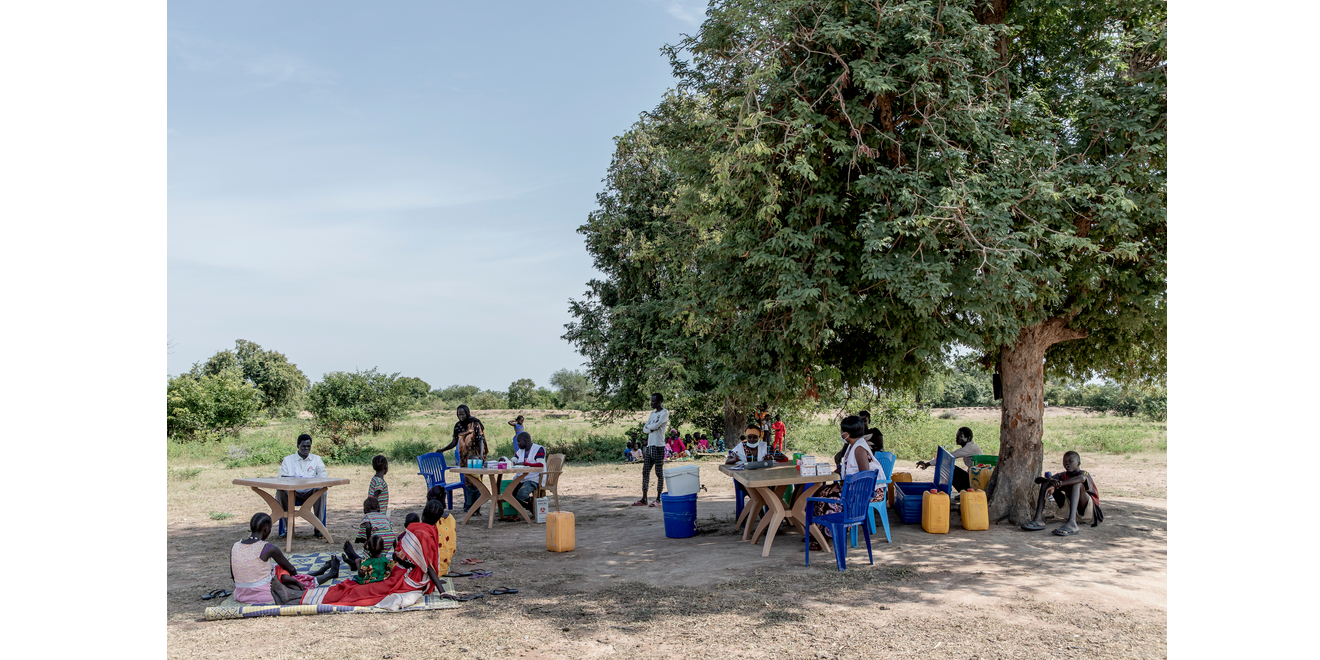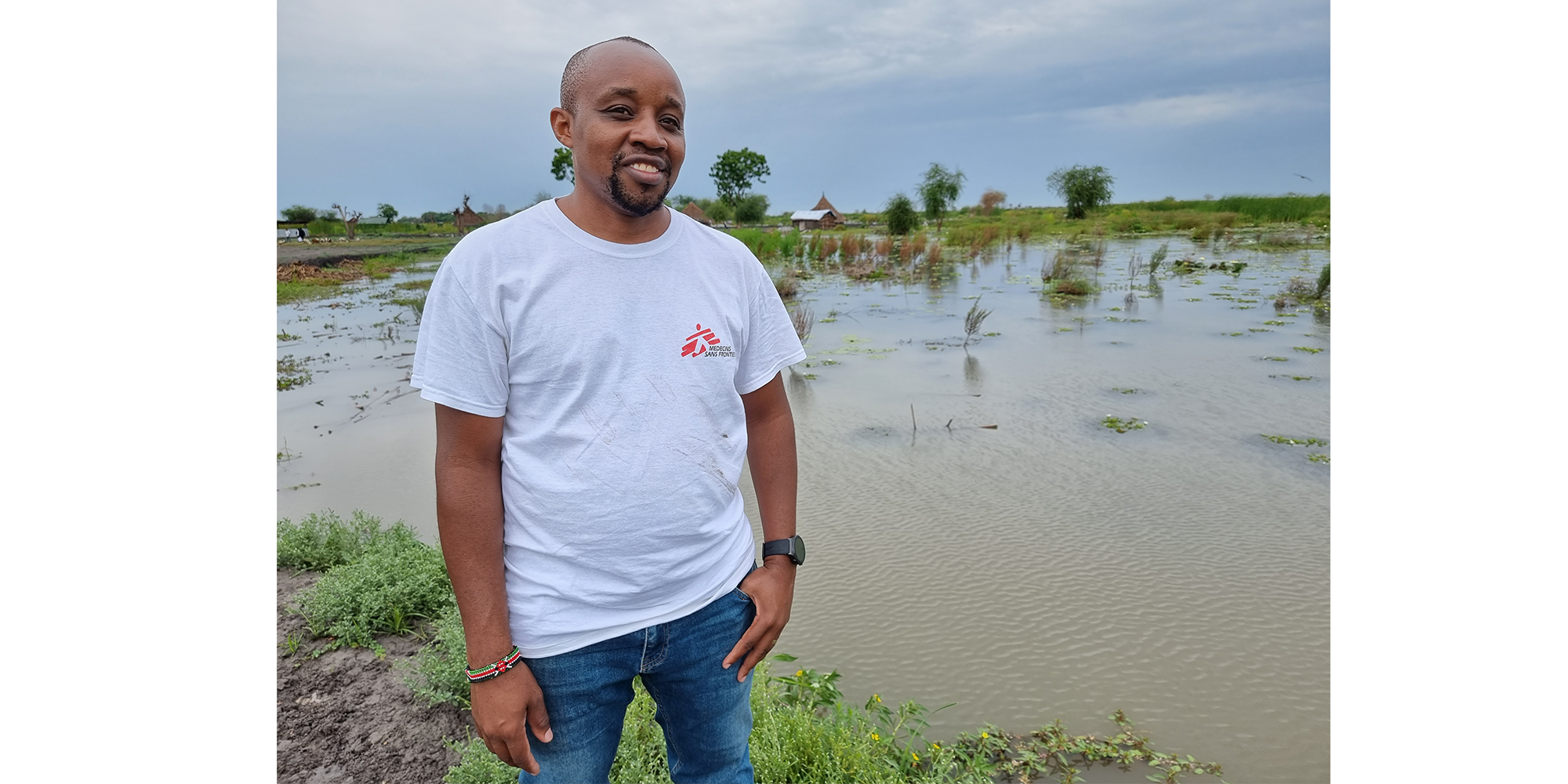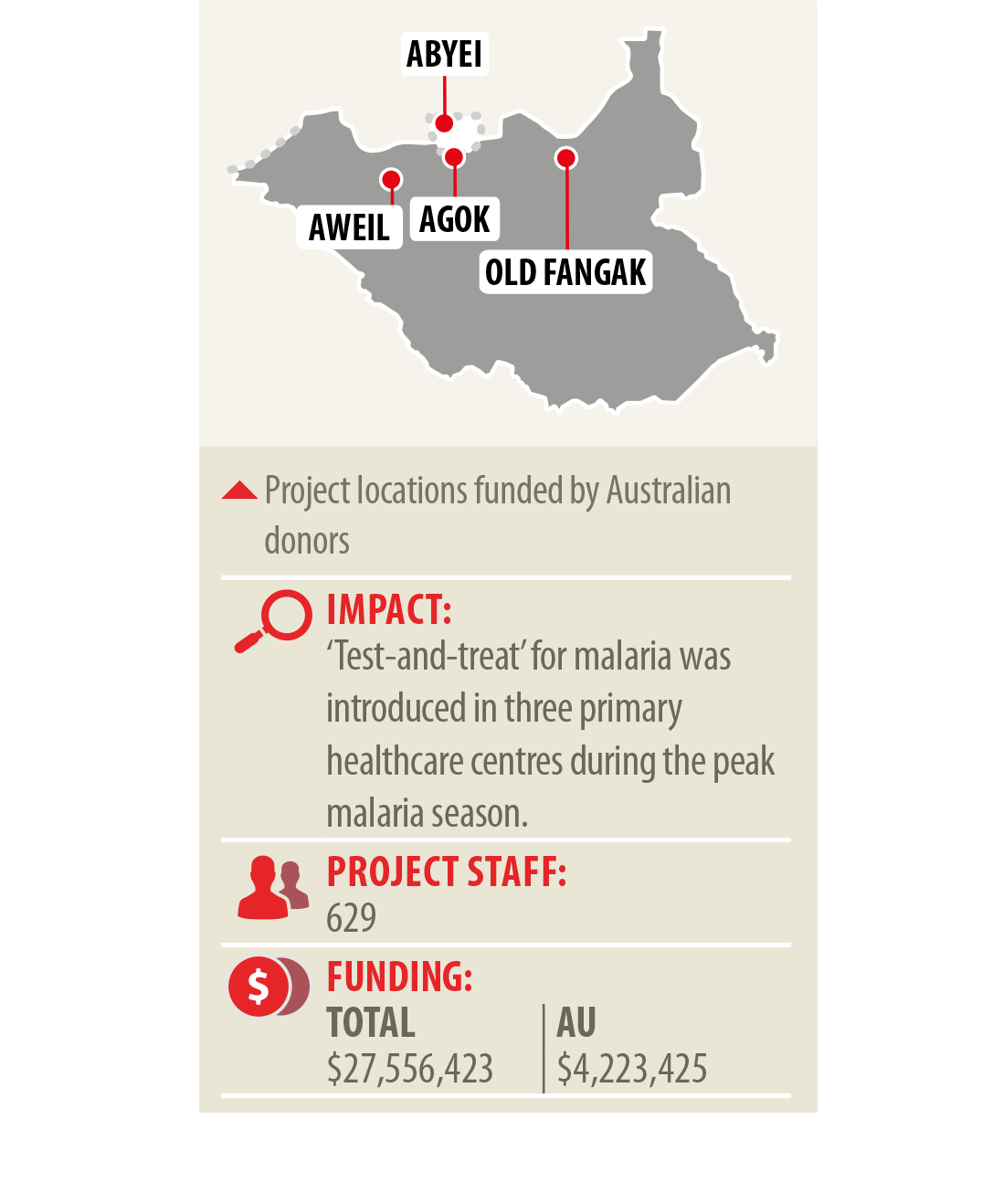
5 minute read
MSF AUSTRALIA | SOUTH SUDAN 2022

More than two-thirds of people in South Sudan were in need of humanitarian assistance in 2022.
Communities continued to suffer the consequences of recurrent violence, poor access to healthcare, economic instability and a fourth consecutive year of disastrous flooding. Substantial cuts were also made to international aid during the year.
In Abyei, a disputed area between Sudan and South Sudan, MSF’s 180-bed hospital in Agok town continued to offer surgery, neonatal and paediatric care, treatment for snakebites, care for people living with HIV and tuberculosis, diabetes treatment and care for malaria until February, when violent clashes broke out in the community and caused residents to flee their homes.
Our teams followed displaced people— mostly women and children—to Abyei town and Twic county, to provide medical assistance. One of MSF’s South Sudanese nurses from Agok hospital was killed inside his home during these clashes.
In Aweil, MSF continued working in Aweil State Hospital (a Ministry of Health facility), supporting maternal and child healthcare and running an outpatient clinic for children with diabetes.
We also supported a ‘test-and-treat’ centre for malaria, attached to the hospital’s outpatient department, with the aim to reduce the incidence of severe malaria during the peak season. This approach mostly relies on the use of rapid diagnostic tests. Our teams carried out outreach activities providing seasonal malaria chemoprevention and seasonal support for malaria care to three outpatient facilities.

THE ACADEMY FOR HEALTHCARE
After decades of conflict, severe shortages of both health infrastructure and qualified medical professionals in South Sudan continue to pose major challenges to the development of a good healthcare system in the world’s youngest nation.
Founded in 2017, the MSF Academy for Healthcare is a training initiative designed to strengthen the professional development of locally hired MSF health workers and improve the quality and continuity of care provided in MSF projects. It is currently running in several countries across sub-Saharan Africa.
In June 2022, the first group of 35 nursing students in Old Fangak, Jonglei state, graduated after completing 18 months of nursing care training.
I’VE SEEN THE IMPACT THE TRAINING HAS MADE
Wilson Thiongo is a nurse educator with the MSF Academy for Healthcare in South Sudan.

Being passionate about my career as a nurse, and wanting to utilise my nursing skills for the benefit of humanity, led me into humanitarian work.
In 2019, I was fortunate to get a job with the MSF Academy for Healthcare. I was in charge of implementing the Basic Clinical Nursing Care curriculum for nurses and midwives. Since then, I have worked with MSF in many locations in South Sudan, including Juba, Old Fangak, Bentiu and Malakal.
MSF works in remote areas with marginalised communities. With limited qualified health staff in these areas, MSF provides on-the-job training for people so that they can carry out medical interventions safely. The MSF Academy aims to professionalise and formalise this training. We engage tutors who are qualified and have experience in both mentorship and tutorship.
The MSF Academy is like a college within a project. We have classrooms, bedside teaching and a pool of staff working as tutors, whom I supervise and mentor. Since joining the MSF Academy, I’ve seen the impact the training has made on our healthcare staff and the patients we care for by improving the quality of care we provide.
Despite working within a hospital setting, we run the MSF Academy just like any other learning institution. On a normal day, I go to the classrooms to make sure that tutors are ready and go through the session plans to ensure that classes have started. I also visit the hospitals to see how the medical tutors are integrating with the rest of the team, while supporting the clinical mentors in their day-to-day activities in the wards.
One of the things that I’m most happy with is seeing how the MSF Academy helps improve things in the facilities where we work, and at the same time empowering our learners. My most proud moment was in early June [2022] when the first cohort of students graduated in Old Fangak. That’s when I realised the magnitude and impact of the training we have been offering. It was even more fulfilling seeing the community celebrate and support the graduates.
As a nurse educator, I’m now more motivated to transfer and share my knowledge and skills with upcoming nurses so that they are able to give better care to their patients and help save lives.
KEY ACTIVITIES
Diabetes care, maternal healthcare, malaria response, neonatal care, paediatric care, snakebite treatment, staff professional development.












